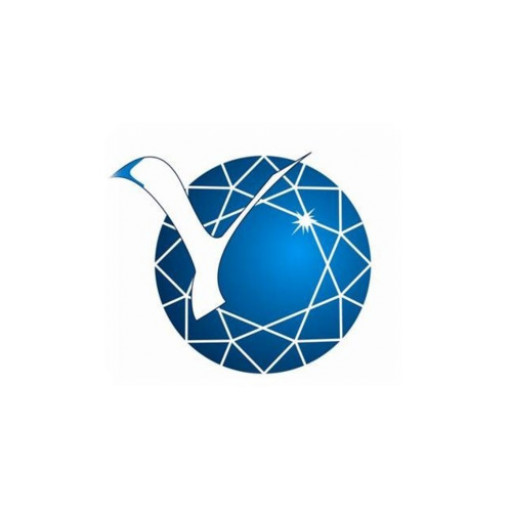Photos of university / #utrechtuniversity
The Master’s Programme in Information Science at Utrecht University offers a comprehensive and multidisciplinary education designed to prepare students for the evolving challenges of data, information, and knowledge management in a digital world. This innovative programme combines theoretical insights with practical applications, equipping graduates with the necessary skills to analyze, design, and manage information systems across various sectors. Students will explore core topics such as data management, information retrieval, human-computer interaction, and the ethical aspects of information technology. The curriculum emphasizes a user-centered approach, focusing on how people interact with information systems and how these systems can be optimized for efficiency and user satisfaction. Throughout the programme, students engage in hands-on projects, collaborative research, and internships that provide real-world experience. The programme is suitable for individuals with backgrounds in computer science, information science, or related fields who are eager to deepen their understanding of information technologies and their societal impact. Graduates will be well-equipped to pursue careers in areas such as data analysis, information consultancy, user experience design, and digital innovation. With a strong international orientation, the programme attracts students from around the globe, fostering a diverse academic community that encourages innovative thinking and intercultural exchange. Upon completing the programme, graduates will have developed advanced research skills, technical expertise, and critical thinking abilities essential for leading in the field of information science. The Utrecht University Master’s in Information Science thus prepares students not only for current industry demands but also for future technological developments and challenges in the ever-changing landscape of digital information.
The Master's in Information Science at Utrecht University offers a comprehensive and interdisciplinary curriculum designed to equip students with the theoretical knowledge and practical skills necessary to address complex information-related challenges in various professional contexts. The program focuses on the core principles of information systems, data management, human-computer interaction, and the societal impacts of information technology. Students will explore topics such as information architecture, digital innovation, data analysis, and information security, preparing them for diverse careers in academia, industry, and public organizations. The curriculum emphasizes critical thinking and problem-solving abilities through project-based learning, internships, and collaboration with industry partners. Throughout the program, students gain hands-on experience with cutting-edge tools and methodologies used to design, evaluate, and implement effective information systems. Additionally, the program promotes an understanding of ethical considerations and sustainability issues related to information technology, fostering responsible and socially conscious professionals. Students have the opportunity to tailor their studies by choosing specialized tracks or electives aligned with their interests, such as data science, user experience design, or information management. The program is delivered by experienced faculty members who are leaders in their fields, ensuring that students receive a high-quality education grounded in the latest research and industry practices. Graduates of the Master's in Information Science at Utrecht University are well-prepared to lead digital transformation initiatives, innovate within their organizations, and contribute positively to society by creating accessible, efficient, and secure information solutions. With a strong emphasis on research and practical application, the program aims to develop versatile professionals capable of adapting to the rapidly evolving digital landscape.
Other requirements
The financing options for the Master's program in Information Science at Utrecht University are designed to support students through various funding sources. International students are encouraged to explore scholarships specifically available for international students, such as the Utrecht Excellence Scholarships, which provide financial support based on academic merit. Additionally, Dutch students and residents may be eligible for government student loans and grants through the Dutch Education Executive Agency (DUO). These loans can cover tuition fees and living expenses, and repayment terms are structured to accommodate graduates’ income levels.
Many students also consider private scholarships and financial aid packages offered by external organizations, foundations, or through partnerships with industry. Utrecht University provides comprehensive guidance on applying for these scholarships, including eligibility criteria and application procedures. For students from within the European Union, the tuition fees are generally lower than those for non-EU students, and there are specific grants aimed at EU residents.
Students are advised to also look into part-time work opportunities either on-campus or nearby, which can help finance their studies while gaining professional experience. Utrecht University’s Career Services offers resources and support for finding suitable employment during studies, which can supplement financial planning.
Funding can also be obtained through student loan programs available via Utrecht University or via national schemes, depending on the student’s country of residence. It is recommended that students start planning and applying for funding early, as some scholarships and grants have strict application deadlines. The university’s financial aid office provides personalized advice and support to help students identify the most suitable financing options based on their individual circumstances.
In summary, financing a Master’s in Information Science at Utrecht University involves a combination of scholarships, government loans, private funding, and employment opportunities, all aimed at making postgraduate education accessible and affordable for a diverse student body.
The Bachelor's programme in Information Science at Utrecht University offers students a comprehensive understanding of the digital information landscape. The programme aims to equip students with both theoretical knowledge and practical skills necessary for the effective management, analysis, and development of information systems. Students explore various facets of information science, including data analysis, information architecture, information retrieval, and user experience design. The curriculum is designed to provide a solid foundation in computer science, library science, and communication studies, fostering interdisciplinary expertise vital for the rapidly evolving digital world.
Throughout the programme, students engage in a mix of lectures, seminars, and hands-on projects that simulate real-world scenarios. They learn to work with data management tools, programming languages, and information systems architecture, preparing them for careers in sectors such as IT, consultancy, government, and media. The programme emphasizes critical thinking about the societal implications of information technology, including issues related to privacy, ethics, and information security.
Students also have opportunities for international exchange and internships, enhancing their global perspective and practical experience. Utrecht University’s state-of-the-art facilities and collaborations with industry partners provide an environment conducive to innovative learning and research. Graduates of the programme are well-prepared to pursue further studies or to enter the workforce as information analysts, system developers, information managers, or research specialists.
The programme duration is three years, with courses taught primarily in English. Admission requirements include a secondary school diploma equivalent to Dutch standards, proof of proficiency in English, and motivation to study information science. The curriculum is regularly updated to reflect the latest trends and developments in information technology and science, ensuring that students gain relevant and up-to-date knowledge.
The programme also emphasizes personal development, teamwork, and communication skills. Students are encouraged to develop their problem-solving abilities and to work effectively in multidisciplinary teams. Upon graduation, students will possess a critical understanding of how information systems influence society and how to leverage technology to solve complex problems. Overall, the Bachelor’s in Information Science at Utrecht University offers a robust foundation for those interested in pursuing careers in the dynamic field of information technology and management, providing students with the knowledge, skills, and mindset required for success in the digital age.








